- ASPIRE
- Advanced Technology Research Council
- Abu Dhabi Autonomous Racing League
- A2RL
- Stephane Timpano
- EAV-24
- H.E. Faisal Al Bannai
A2RL Returns In 2025 with $2.25 Million Prize Pool And Groundbreaking Virtual Racing Series
- By MT Bureau
- May 20, 2025
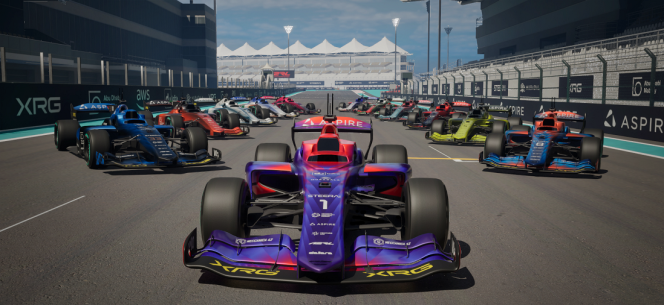
ASPIRE, the program management arm of Abu Dhabi’s Advanced Technology Research Council (ATRC), has officially announced the return of the Abu Dhabi Autonomous Racing League (A2RL), set to take place on 15 November 2025, at Yas Marina Circuit. The second edition of the world-leading autonomous racing competition will feature an expanded global field, an upgraded racecar and a newly launched virtual racing series, with a total prize pool of USD 2.25 million.
The announcement was made during the Make it in the Emirates Forum, underscoring the UAE’s growing stature in advanced mobility and AI-driven innovation. It builds on the success of its debut in April 2024 – which attracted over 10,000 spectators and more than one million global livestream viewers.
A key highlight of the new season is the introduction of A2RL SIM-Sprint, a year-round virtual competition that will allow teams to refine their algorithms and test autonomous driving systems in simulated environments. This extension of the league offers a controlled, repeatable platform to accelerate AI development, particularly in dealing with ‘edge cases’ – rare scenarios that are difficult to replicate in real-world racing.
Stephane Timpano, CEO of ASPIRE, said, “By combining the physical thrill of racing with the precision of virtual testing, we’re enabling the world’s best minds to push the boundaries of AI. This year’s expanded league reflects Abu Dhabi’s commitment to challenge-driven innovation, where real-world impact is engineered at speed and scale.”
At the heart of the competition is the EAV-24, an upgraded autonomous racecar built on the Super Formula SF23 platform. Developed and autonomised entirely in the UAE, the vehicle showcases the country’s advancing capabilities in AI, robotics and high-performance engineering. The EAV-24 boasts enhanced sensors, improved computing systems and sophisticated control logic to handle the extreme demands of autonomous racing.
H.E. Faisal Al Bannai, Advisor to the UAE President for Strategic Research and Advanced Technology Affairs and Secretary General of ATRC, said, “With A2RL, we’re not just testing autonomous technology, we’re accelerating its evolution in the most demanding conditions possible. It’s a showcase of engineering excellence, but more importantly, a platform for the future of mobility. From high-speed racing to real-world applications, we are demonstrating what’s possible when nations invest in deep tech innovation and challenge the world to think faster, build smarter and compete responsibly.”
The 2025 league will feature elite university and research teams from 10 countries, including newcomers France and Japan. Returning participants from the USA, Germany, China, Singapore, Italy and the UAE round out a field representing the forefront of autonomous systems research.
In addition to showcasing cutting-edge engineering, A2RL aims to democratise innovation in mobility. The SIM-Sprint platform is expected to open to a broader community in the future, offering a structured pathway from entry-level simulation to real-world racing. Aspiring developers, fans, and independent teams will be able to join the journey through a tiered system – Sim Academy, Sim Pro, and A2RL qualification rounds.
Each team will race using the Dallara Super Formula SF23 chassis, considered the world’s fastest open-wheel race car after Formula One. Built with sustainable bio-composites and capable of speeds up to 300 kmph, the SF23 is equipped with advanced braking, drive-by-wire throttle and a custom-built autonomous software stack.
A2RL continues to position Abu Dhabi as a global leader in the future of mobility, where high-performance engineering and AI converge in a real-world testbed of unprecedented scale.
Sterling Tools Partners China’s MINIEYE To Introduce ADAS Solutions In India
- By MT Bureau
- January 19, 2026
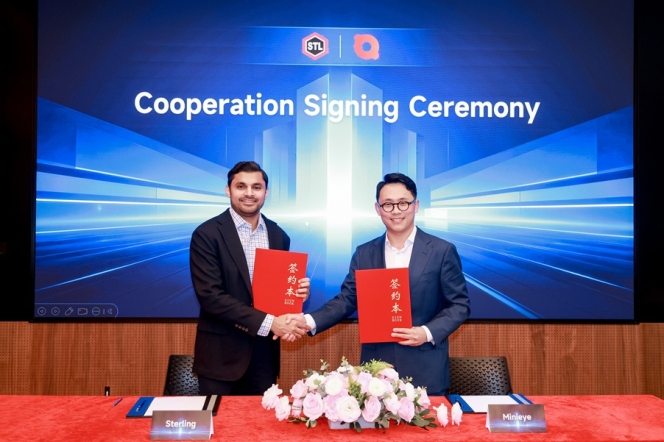
Sterling Tools has entered into a partnership with MINIEYE, a Hong Kong-listed developer of intelligent driving and in-cabin solutions. The collaboration focuses on the deployment of Advanced Driver Assistance Systems (ADAS) and Driver Monitoring Systems (DMS) tailored specifically for the Indian automotive market.
As per the agreement, Sterling Tools will lead application engineering and on-ground adaptation. This involves tuning perception algorithms to account for Indian road scenarios, traffic patterns, and environmental conditions. The project aims to ensure that safety technologies, such as Autonomous Emergency Braking (AEB) and Lane Departure Warning Systems (LDWS), function reliably in local settings rather than relying on global configurations.
The partnership is positioned to meet upcoming Indian safety mandates. Effective 1 January 2027, regulations will require the fitment of ADAS and Driver Drowsiness and Attention Warning Systems (DDAWS) in new vehicle models. The scope of the collaboration covers both commercial and passenger vehicles, including technologies for Forward Collision Warning (FCW) and Blind Spot Monitoring.
MINIEYE provides technology that complies with EU General Safety Regulations and holds Automotive SPICE V4.0 CL3 certification. Sterling Tools is supporting this transition as part of a broader expansion into electronics and safety-critical components, which includes electric vehicle power electronics and motor solutions.
Anish Agarwal, Director, Sterling Tools, said, “Road safety and regulatory compliance are becoming increasingly important across both commercial and passenger vehicle segments in India. This collaboration allows us to work with a global technology partner to address the growing need for driver assistance and monitoring systems that are engineered for Indian operating conditions. At Sterling Tools, our focus remains on supporting OEMs with engineered, safety critical technologies aligned with upcoming regulatory requirements.”
Dr Liu Guoqing, Founder and Chairman, MINIEYE, added, “Partnering with Sterling Tools marks a vital step in bringing intelligent driving to India, leveraging Sterling Tools local expertise to translate technology into production-ready applications that enhance vehicle safety.”
- Front AI Communication Ecosystem
- F.A.C.E
- Faraday Future Intelligent Electric Inc.
- Max Ma
- FX Super One MPV
Faraday Future Details F.A.C.E AI Front Grille System For FX Super One
- By MT Bureau
- January 18, 2026
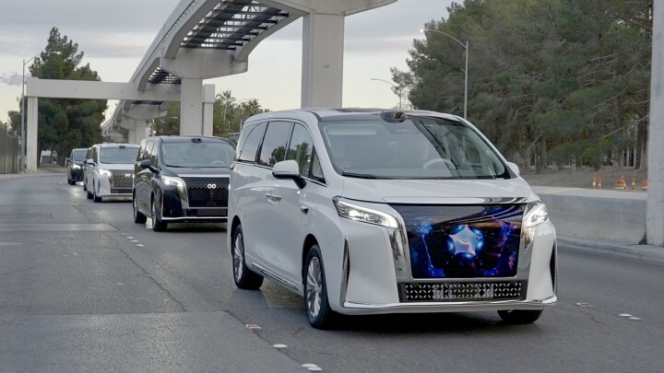
Faraday Future Intelligent Electric Inc. has released technical details regarding the Front AI Communication Ecosystem (F.A.C.E.), a system featured on the electric version of its FX Super One MPV.
The technology replaces the traditional front grille with a display and an AI avatar designed to act as a co-pilot and communication interface.
The system utilises multimodal interaction, including voice, gesture and touch, to respond to user needs. It is controlled via a smartphone application, allowing for the display of custom graphics, logos and streaming video while the vehicle is stationary. The hardware incorporates sensors that enable the AI agent to perceive its surroundings and interact with individuals outside the vehicle.

The F.A.C.E. system uses a Large Language Model (LLM) reasoning layer to interpret user intent and execute actions. Its functionality includes role-awareness personalisation, which distinguishes between owners, family members and unknown persons to provide appropriate responses.
The system supports proactive communication, such as initiating responses when someone approaches the vehicle to improve safety. Users can also interact with the vehicle’s voice assistant from the exterior to check status or request access. The FX Super One platform is engineered to support both battery electric and AI hybrid extended range (AIHER) powertrains.
The FX Super One is positioned as a mass-market MPV for the United States. Faraday Future has established a three-stage delivery structure for the model:
- Phase One: Deliveries to FX Partners are expected to begin in the second quarter of this year.
- Phase Two: B2B partner deliveries and production ramp-up are scheduled for the third quarter.
- Phase Three: Full-scale consumer market deliveries are targeted for the final quarter of this year or the first quarter of 2027.
Max Ma, Global CEO, FX, said, “Offering technology like our unique F.A.C.E system in a new category of vehicle will be a game changer in the marketplace. It will allow users to connect with the world in a totally new way. It can express itself and communicate to the world in a way never seen before in a vehicle. The FX Super One is not just a new MPV, it is the first mass-market, first-class Embodied AI MPV designed for the U.S. market, where intelligent space, AI interaction, sensing, computing and power and extended-range capability come together in a single platform.”
- Schaeffler
- ReDriveS
- German Federal Ministry for Economic Affairs and Climate Action
- Prof. Dr. Tim Hosenfeldt
Schaeffler Leads ReDriveS Project For Electric Axle Drive Recycling
- By MT Bureau
- January 17, 2026
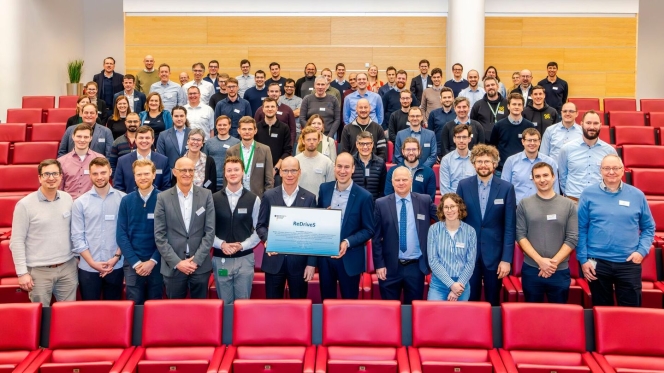
German component supplier Schaeffler is leading the ReDriveS research project, an initiative funded by the German Federal Ministry for Economic Affairs and Climate Action. The project, which includes 25 partners from industry and academia, aims to develop an automated and scalable recycling concept for electric axle drive systems.
The project has a volume of over EUR 25 million, with funding exceeding EUR 16 million over a 36-month period. The technical focus is on robot-guided disassembly to recover materials such as rare earths, copper, aluminium and steel. This approach is intended to support the repair of drives, the reuse of subcomponents, or the recycling of materials to meet statutory requirements and secure supply chains.
A central component of the project is the development of a digital twin that processes data throughout the lifecycle of an axle drive. This digital model assesses the condition and geometry of units to determine whether they should be dismantled into main components – such as the motor, inverter, or transmission – or broken down further for material recycling.
The system is designed to be manufacturer-independent, allowing the technology to be used as an industry solution for original equipment manufacturers (OEMs) and recyclers. The project also explores data-based business models for axle drives enabled by this digital ecosystem.
Prof. Dr. Tim Hosenfeldt, Head of Central Technologies at Schaeffler, said, “With ReDriveS, we are launching a key project for the circular economy in electric mobility as consortium leader, together with the German Federal Ministry for Economic Affairs and Energy and strong partners. Our goal is to make electric axle drives significantly more resource-efficient through digital twins, automated disassembly and high-quality recycling – thereby securing raw materials and supply chains, reducing CO2 emissions, and strengthening Germany as a location overall.”
BYD Extends Blade Battery Warranty To 8 Years Or 250,000km
- By MT Bureau
- January 16, 2026
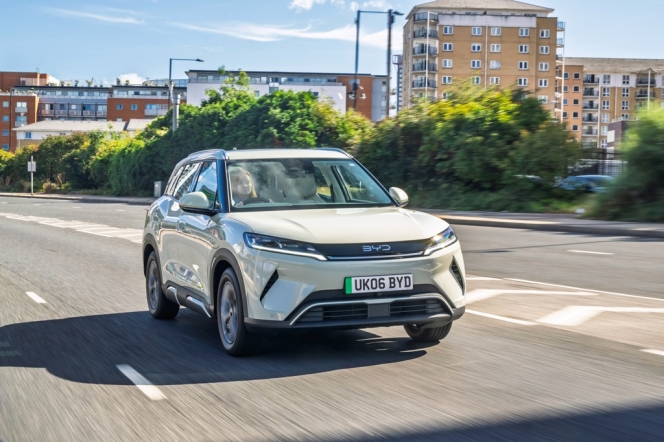
BYD has updated its warranty terms for the Blade Battery in Europe, increasing the mileage limit to 250,000km while maintaining the 8-year duration. The extension applies to both battery electric vehicles (BEVs) and Super Hybrids and includes a guaranteed State of Health (SOH) of at least 70 percent. This change is retroactive, covering existing owners alongside new customers.
The Blade Battery utilises lithium iron phosphate (LFP) chemistry, which avoids the use of nickel and cobalt. Its design allows cells to act as structural elements, increasing the vehicle's torsional rigidity. This configuration reduces the volume occupied by the battery by 50 percent compared to traditional designs, intended to optimise interior space.
The battery has undergone testing, including nail penetration, where surface temperatures remained below 60deg Celsius. It has also been subjected to overcharge tests, oven tests at 300deg Celsius, and crush evaluations. According to BYD, the battery can exceed 3,000 charge and discharge cycles, indicating a service life of approximately 1.2 million kilometres.
Current models utilising this technology include the BYD SEAL, which reports a range of 570km on the combined cycle and the BYD SEALION 7, capable of DC charging from 30 percent to 80 percent in 18 minutes at a power of 230 kW.
Under the new terms, the specific battery cover sits alongside the standard vehicle warranty of six years or 150,000km. The electric drive unit remains covered for eight years or 150,000km, while the anti-perforation warranty continues at 12 years with unlimited mileage. The extension is designed to address user confidence regarding the longevity of energy storage systems in the European market.



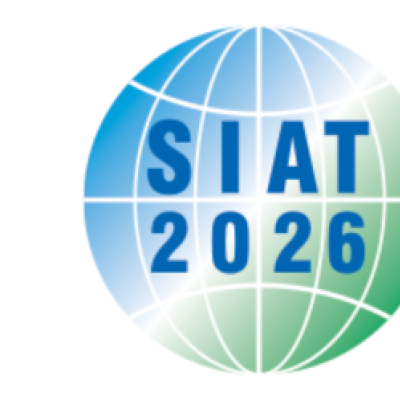



Comments (0)
ADD COMMENT